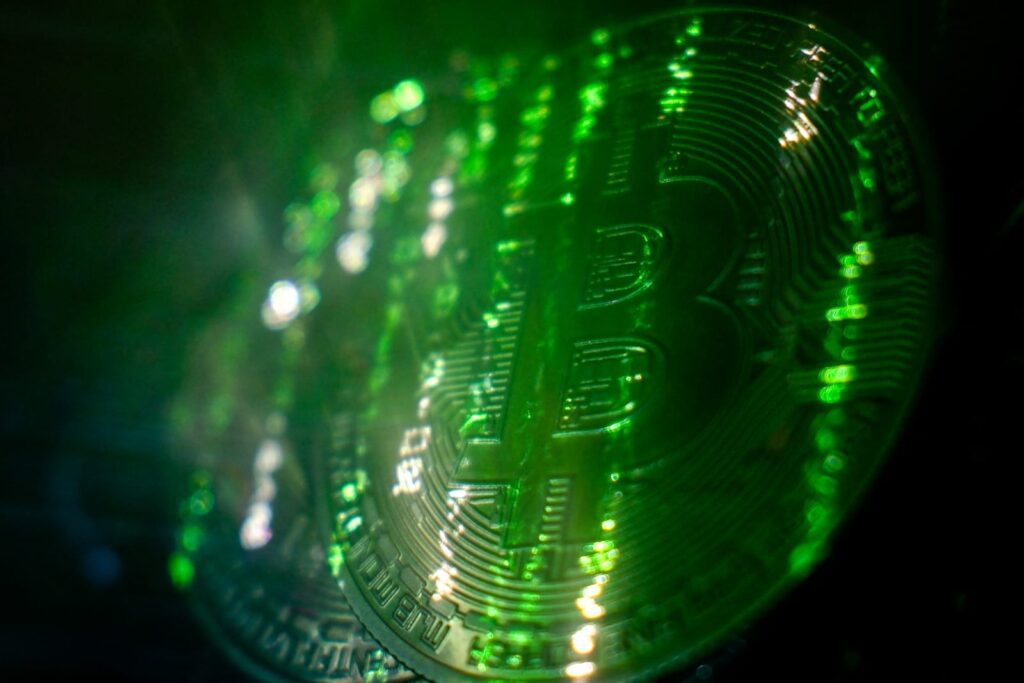Money was an incredible invention that led to productivity growth by facilitating exchange. Unlike old barter systems, when everyone on a market is willing to use a common token with an agreed exchange value, a person selling eggs and wanting to buy fish no longer need to find a fish seller wishing to buy eggs.
The next major step in productivity has come from the development of the lever effect – a trust entity, let’s call this a bank, proposes to keep your species in excess for you. As long as they are sure that everyone will not want their deposits to return at the same time, they can lend part of this money to others who can use it to invest in the expansion of their production. If the bank does its job well, the borrower will be able to reimburse the loan with interest, so that the bank can reward the depositors to encourage them to save more.
It is the money creation process thanks to the monetary multiplier. The starting point is the question of currency, which, until the introduction of cryptocurrencies in recent years, had almost exclusively the banks’ reserve.
Cryptocurrencies are digital currencies recorded on a blockchain, a large digital book and configured mainly by private entities. Most cryptocurrencies have a rule on how they are created that put constraints on their supply. Their value of use comes from their ability to be used in transactions which, at least on the first pass, are more difficult to trace, facilitating transactions on the Dark web and in scam operations. But speculative media threw saw the value of some, including Bitcoin, reaching dizzying heights. The list should include mecoins, such as Doge and $ Trump.
The international architecture of the financial sector established in the past 80 years has been a continuous effort to follow private sector innovations in financial products.
Some governments have expressed their own digital currency (some based on blockchain) and others are considering it. Digital currencies published by the Government (Central Bank) differ from those issued by the private sector because, such as national currencies (species) or government obligations, they have a guarantee of converting their digital currency into species on request.
The international architecture of the financial sector established in the past 80 years has been a continuous effort to follow private sector innovations in financial products. This ranges from guaranteed debt obligations that have sparked the 2007-08 global financial crisis in the massive options market, largely speculative. The stability of the financial market is important for ordinary people, because it is those who suffer when crises cause recessions and erude the value of their pensions.
This story highlights the importance of regulations to maintain confidence in money and financial systems. Cryptocurrencies could improve the performance of the financial system by increasing competition, as in payment payments, and by providing financial services to poorly served by current financial institutions. But to date, too many cryptographic transactions are “pumps and discharges” and “carpet prints” while traders seek to take advantage of the offense.
Regulation is necessary to ensure that the public is not misleading. Throughout history, the banks started with individuals made their founders rich, but too often collapsed because the borrowers could not reimburse, or the depositors wanted their money to return at the same time. Silicon Valley Bank is a recent example of this last situation. The American federal reserve system was created in 1913 following the financial panic of 1907 which saw the banks collapse while the depositors lost confidence.
With digital currencies, the need for regulation is the same. The stablecoins, issued by private entities, must have a reserve of liquid assets so that Stablecoin can be converted at nominal value to species on request. Some, like Tether, seem to do it (although to be checked), others clearly do it. Other cryptocurrencies can be exchanged on a scholarship with a buyer ready to pay in cash or another crypto.
But the regulations must ensure that stablecoins are supported with real active ingredients, and that crypto can mature beyond a Ponzi-de Ponzi-Plus style instrument rich to that which provides real competition to poorly managed government currencies and financial service providers.
This brings us to the proposed policies of the Trump administration.
First there is the conflict of interest – in addition to the same, Trump and his family are major investors in World Liberty, a borrowing platform against Crypto Holdings.
But more worrying are the risks that the Trump administration’s political program sets the financial system, the ordinary cryptography investor and the primacy of the US dollar. The administration was busy canceling the efforts of the Biden administration to regulate cryptocurrencies. This includes the abandonment of a range of proceedings on misleading behaviors by cryptographic issuers. Gary Gensler, the chief of the Hawk crypto of the Securities and Exchange Commission was replaced by a friendly crypto chair. In addition to the effective closure of the Financial Consumer Protection Bureau, these measures point out that ordinary crypto buyers will be alone to deal with fraud and misleading information.
The same goes for the major players, who have managed to put pressure on the US government to establish a “strategic bitcoin reserve and storage of digital assets”. This has the price stabilization work, an essential element if the crypto consists in expanding beyond the uses of Friging on the international financial markets, and including if it will never replace the US dollar.
Financial institutions face considerable regulations because their activities have systemic risks that governments know that they will have to face. Until now, the cryptography industry has extracted government support, while releasing all risks to the public. It is quite clear that the Trump administration will focus on the protection of the interests of cryptocurrency companies and not the cup bettors who dream that the crypto will make them rich.




